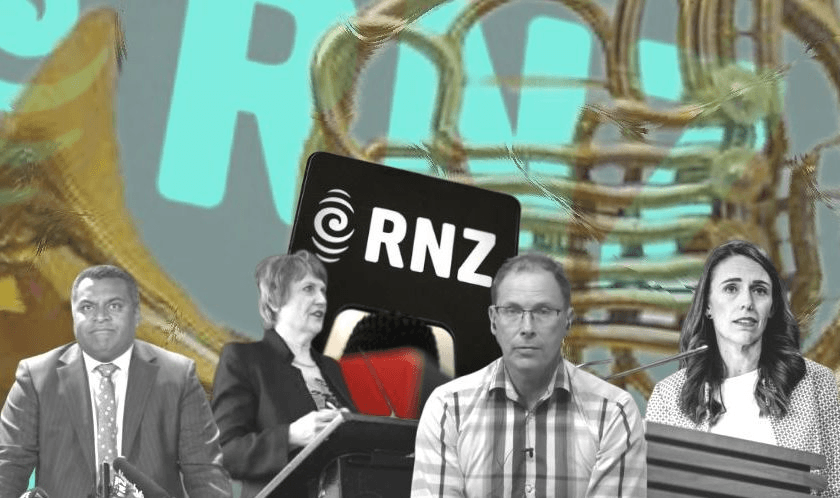Host Duncan Greive is joined by The Spinoff editor Toby Manhire to discuss the dramatic events surrounding RNZ this month on The Spinoff’s media podcast, The Fold.
It’s an institution whose major point-of-difference is its stability – while the rest of media is slashing and pivoting, RNZ has shows which run for decades without major changes and are beloved for it. As a result, RNZ mostly avoids the kind of scrutiny and drama which has gripped the likes of MediaWorks, NZME and Stuff with increasing regularity over the past few years.
Then February happened.
It began with confirmation that the government has enlisted PWC to assess the business case for merging RNZ with TVNZ. This has been whispered about since the middle of last year, and news of its discussion was broken by Jane Patterson for RNZ. In fact broadcasting minister Kris Faafoi’s announcement, at the New Zealand Broadcasting School in Christchurch, was both enormous and mundane. Enormous because it was New Zealand’s largest media operator (the government) foreshadowing the potential merger and expansion of its two most-prominent entities. Mundane because it had already been well-flagged, and could easily have been handled with a press release, so thin was the detail available.
Two days earlier another story began brewing, one which appeared far smaller – a consultation document issued, with a view to evolving RNZ’s music offering – but ended up being extraordinarily impactful. The proposal to move RNZ Concert to AM and automate its playlists, to make room for a youth brand on FM, roused the most powerful and influential protest movement in recent New Zealand history, as former PM Helen Clark led a cavalcade of well-connected lawyers and diplomats to make the government very aware of just how annoyed they were at this prospect.
Within a week the idea had been shelved, and there was a strong signal that funding and a frequency would be made available to ensure that both Concert and the youth brand could happen. Rarely has this government moved faster and appeared more decisive.
Further reading:
- What the RNZ- TVNZ merger might mean for the rest of the media
- Fury as RNZ Concert faces major downsizing
- The restructure is off. So what next for RNZ?
- On Dirty Politics deja vu
That episode had barely subsided when a third major story erupted with RNZ at its heart. The NZ First Foundation, whose accounts have been drip-fed out through the reporting of Guyon Espiner and Katie Newton at RNZ, and Matt Shand for Stuff, appeared to swing a counterpunch, when covert photographs of Espiner meeting former NZ First president Lester Gray appeared on the BFD, a sad sequel to Whale Oil. Winston Peters, appearing on Magic Talk (having refused repeated requests for an interview with RNZ), claimed responsibility for the images, then, after an entirely predictable uproar, clumsily attempted to distance himself.
It became the dominant story of the month, the apparent reemergence of dirty politics, right at the heart of a government which had disavowed them. Targeting journalists at work in such a sinister and brazen way has few precedents in this country (MediaWatch pointed to one this morning, though it was driven by a former politician, not the deputy Prime Minister), and both Stuff and RNZ were understandably deeply troubled by it.
Given the sheer scale and volume of news emanating from it, I was pleasantly surprised when RNZ CEO Paul Thompson accepted my invitation to join me on my media podcast The Fold, and not at all surprised when he apologetically cancelled a few days out. He has far more pressing issues at hand.
Yet the RNZ story remains the most fascinating in media this month, so I corralled The Spinoff’s editor, Toby Manhire, who contributed the definitive reporting of the Concert saga, to talk about what went down, and what it all meant.
To listen head to The Fold on The Spinoff podcasts, to subscribe via iTunes, Spotify, RSS or via your favourite podcast client.

